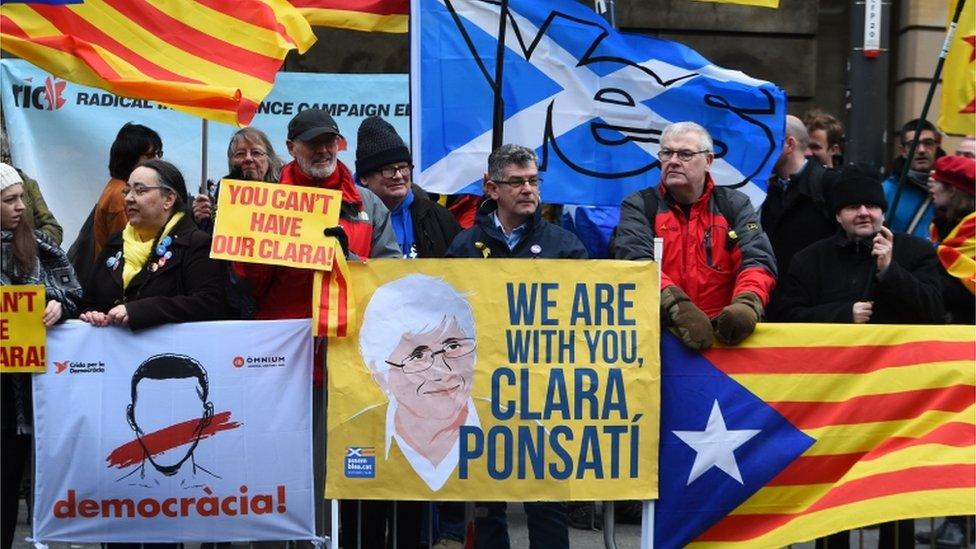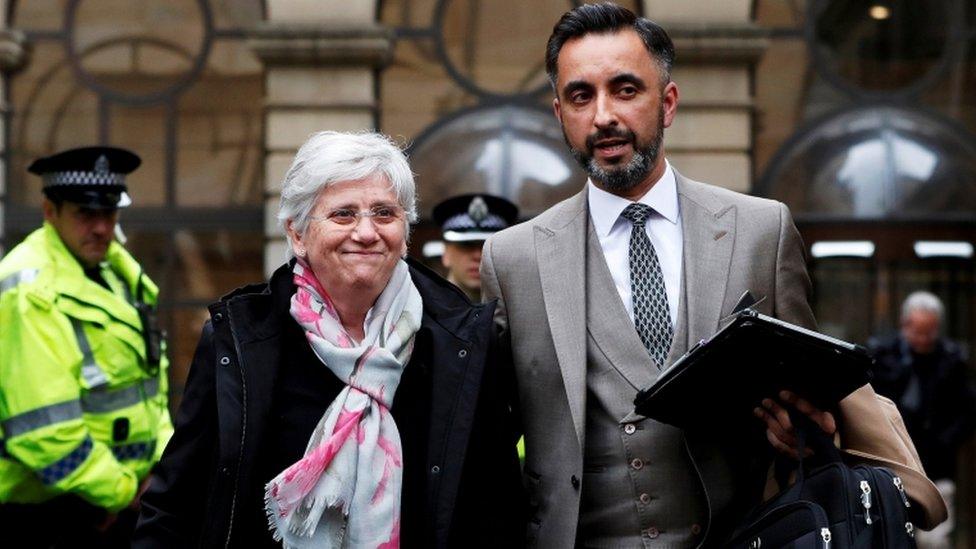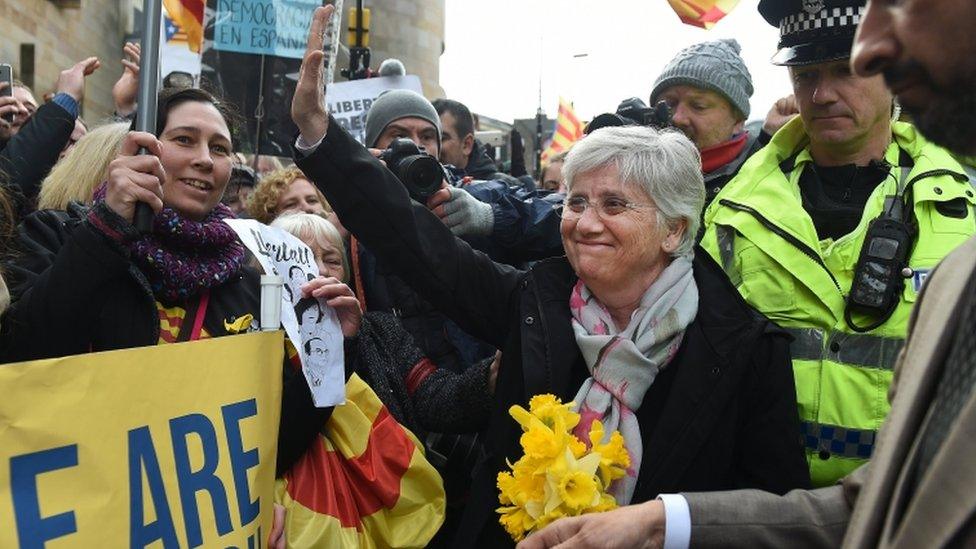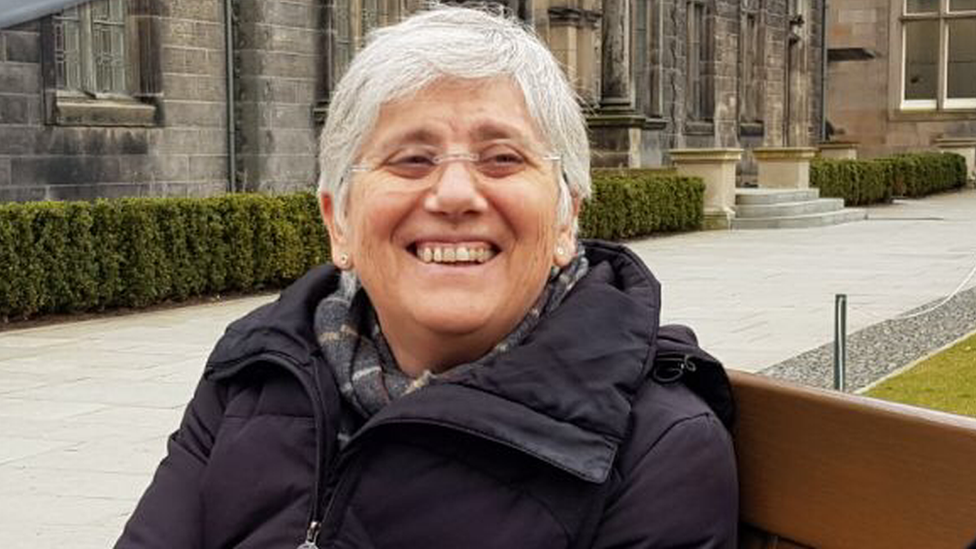Two-week hearing fixed over Catalan minister extradition
- Published
Lawyer Aamer Anwar says the charges against Clara Ponsati are "politically motivated"
A two-week hearing is to be held over whether a former Catalan minister should be extradited from Scotland to Spain on charges of rebellion.
Clara Ponsatí appeared at Edinburgh Sheriff Court for the latest hearing in her fight against extradition.
The St Andrews University professor could face up to 33 years in prison if she is sent for trial in Spain.
Her lawyer said the charges against her are "a grotesque distortion of the truth" and "politically motivated".
Aamer Anwar said a two-week hearing would begin from 30 July, after further procedural hearings, at which extradition would be challenged "robustly".
Prof Ponsatí is being pursued by the Spanish government over her involvement in last year's Catalan independence referendum, which was ruled illegal by Spanish courts.
She handed herself in to police in Edinburgh in March, and was subsequently released on bail following a preliminary hearing.
Rebellion charges
The European arrest warrant seeking her extradition, seen by BBC Scotland, claims the professor - who was appointed education minister in the Catalan government between July and October 2017 - was responsible for widespread violence against police during what it terms a "revolt".
It includes lengthy details of confrontations at polling stations across the region, including injuries it says were suffered by officers of the Spanish security forces running from "kicks and punches" to "multiple insults".
It also charges her with misappropriation of public funds, estimating that the referendum cost over €1.6m (£1.4m) to hold.

Following the latest hearing, Mr Anwar said said: "Clara, an esteemed university professor, has never committed a criminal act in her life. If extradited she faces up to 33 years for peacefully promoting a referendum.
"At today's hearing, we advised the court that we intend to fight extradition on many grounds, including fundamentally that the Spanish authorities are guilty of an abuse of process."
'Unjust and oppressive'
In court, both sides agreed that at least eight days of evidence and submissions would be required in the case.
The defence said they would be fighting extradition on a range of points, both legal and political.
Mr Anwar said the defence team would "challenge the validity of the warrant", as it "has been issued for the purpose of prosecuting Clara for her political opinions".
He said her legal team would argue that "the crime of violent rebellion does not exist in the law of Scotland", and that extradition would be "unjust, oppressive and incompatible with her human rights".
He added: "Spain has systematically abused the process of the extradition treaty to set out allegations which they know cannot amount to crimes in their courts."
- Published11 April 2018

- Published28 March 2018

- Published25 March 2018
